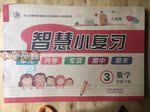题目内容
Look!The room is ________ lighted and full of guests.
- A.brilliantly
- B.clearly
- C.warmly
- D.constantly

 智慧小复习系列答案
智慧小复习系列答案Inside the pleasingly fragrant cafe, So All May Eat(SAME) in downtown Denver ,t
he spirit of generosity is instantly noticeable: donation box stands in place of
a cash register customers here pay only what they can afford, no questions asked.
A risky business plan, perhaps, but SAME Café has done one unchangeable thing i
n the MileHigh City for six years: Open only at midday, the restaurant allows p
oor local customers who cannot pay to work as volunteers instead. They can act as
waitersandwaitresses,anddishwashers, or look after the buildings and equipment
for the cafe.It’s based on trust, and it’s working all right”, says co-owne
r Brad Birky, who started the caféin 2006. Previously volunteering at soup kitc
hens, the Birkys were dissatisfied with the often unhealthy meals they served t
here. “We wanted to offer quality food in a restaurant where every-one felt co
mfortable,regardless of their circumstances,” Birky says. SAME’s special lunc
h menu changs daily and most food materials are natural and grown by local farm
ers. The café now averages 65 to 70 customers (and eight volunteers) a day. And
the spirit of generosity behind the project appears to be spreading. In early
2007,one volunteer who hadcleared snow for his meals during the long winter sai
d goodbye to the Birkys.He said he was going to New Orleans to help with the hu
rricane clearing up,” says Birky.
1.What can we learn about the soup kitchens the Birkys previously worked for?
|
A.They refused to have volunteers. |
|
B.They offered low quality food. |
|
C.They provided customers with a good environment. |
|
D.They closed down because of poor management. |
2.According to the passage, which of the following is TRUE?
|
A.The customers who cannot pay can work as volunteers instead. |
|
B.More volunteers will go to new Orleans for the hurricane cleanup. |
|
C.Many new cafes will be opened to offer free lunches in the town. |
|
D.The lunch menu has remained the same since the café was started. |
3.The author’s attitude towards running such a café is_______
|
A.unfavorable |
B.doubtful |
C.cautious |
D.approving |
请认真阅读下面短文,并根据所读内容在文章后图表中的空格里填入最恰当的单词。注意:每空只填一个单词。
Bored at school now? How do you think it will look in the future? Last week, about 600 teenagers in the U.S. imagined a future changed by technology in which their lessons are taught by robots and they learn about celebrities (名人)and alien(外星人)languages.
According to a survey published last week by the U.S. ,Internet service provider American Online(AOL), only one in 100 thinks that in the future they will walk from home to school; the rest believe they will use jet packs, and hover boards(滑板) as everyday transport.
All the participants(参与者)of the survey are teenagers born into the Internet age. The study is to show how the first cyber (网络的)generation dream about a future life created by advanced technology.
Most believe there will still be schools to go to, but that technology will play an increasingly important role in learning. The 600 teens surveyed think there will still be teachers, but 37 percent imagine them to be robots. Some 24 percent believe that teachers will still be human but they will have inter-changeable microchips so that one person can teach all subjects.
More than one in two believe hover boarding will be popular, while one-third say that wearing rocket boots will be their favorite activity. Another third think jet packs will be popular. Nearly 30 percent think playing football and bike-riding will remain popular.
When it comes to the curriculum(课程), they think future generations will be learning about robot building(63 percent), alien languages(47 percent) celebrities(26 percent) and R’n’B music(22 percent).
Children will wear virtual(虚拟的)reality helmets(头盔) to bring lessons to life, say 40 percent, while over 20 percent believe they will not need lessons because microchips implanted(植入)in their head will send relevant information into the brain. Matt Whyman, adviser to the chief medical officer on youth issues of AOL, said: “ The kids seem very aware of the liberation qualities of technology.”
Title ( 1 )_________school
|
Changes in the way of (2)___traveling |
At present, most students walk to school. In the future, students will use jet packs, and hover boards. |
|
Changes in the way of (3)______ |
In the future, robots will (4)_______ as teachers and human teachers should be (5)_________ with inter-changeable microchips so that one person can teach all subjects. |
|
Changes in the way of (6)_______ |
Virtual reality helmets can bring (7) ________ lessons to them and with the help of microchips implanted in their head, they will not need lessons. |
|
Changes in (8)_______ |
Most students will (9)_______ hover boarding, wearing rocket boots and jet packs while a small (10)_______ of students think playing football and bike-riding will remain popular. |